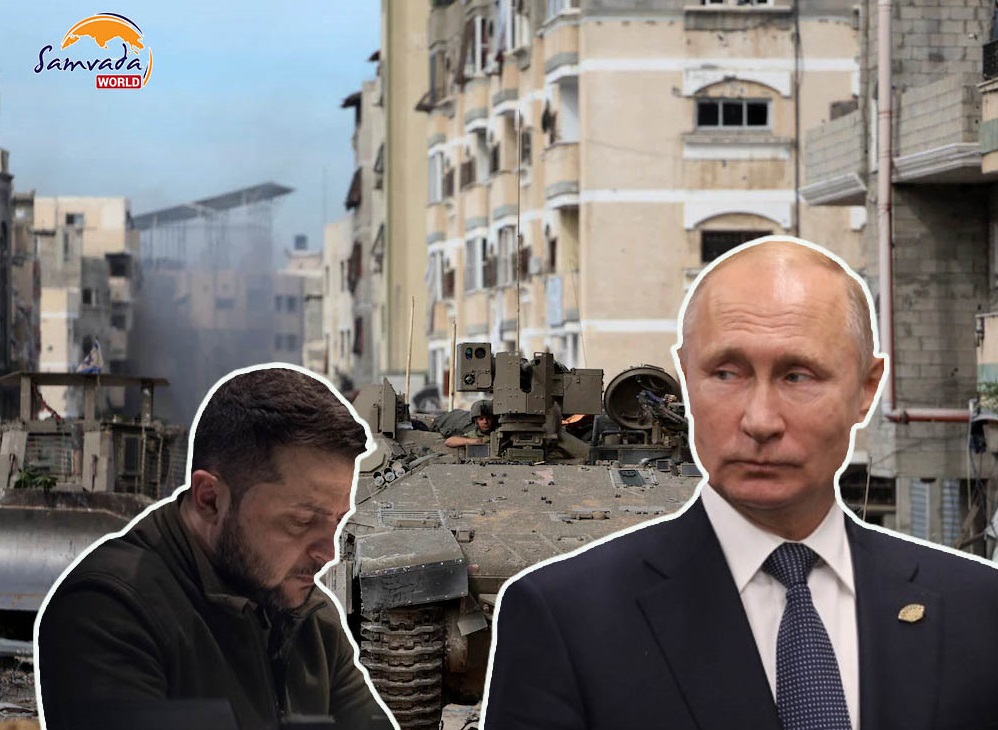
- Putin’s decision to pursue a ceasefire reflects a multifaceted strategy that considers the geopolitical context, human costs, and the priorities of Western powers.
- The territorial gains in Lugansk, Kherson, Donetsk, and Zaporzhye are pivotal to understanding Putin’s ceasefire overture.
- By opting for diplomacy, Putin seeks to secure Russia’s interests while navigating the complexities of the ongoing negotiations with Ukraine.
In a recent development, President Vladimir Putin has allegedly conveyed a willingness to engage in ceasefire negotiations with Ukraine. Drawing on information from unnamed former Russian officials and American sources, the report suggests that intermediaries have been signalling Putin’s openness to such discussions.
Pursuit of Ceasefire
Sources indicate that Putin has been actively seeking an end to hostilities since last September, specifically expressing a desire to halt “fighting along the current lines.” There are also indications that he might be open to considering a deal to bring a conclusion to the two-year-long conflict that has strained relations between Russia and Ukraine
While Putin seems amenable to ceasefire negotiations, the crux lies in his preference for maintaining the current positions of troops rather than a complete withdrawal from territories occupied during the prolonged conflict. A former senior Russian official emphasized Putin’s resolute stance, noting that he is unwilling to retreat even a meter from the existing positions.
Why does President Putin want a ceasefire?
President Putin’s contemplation of a ceasefire with Ukraine demonstrates a nuanced and strategic assessment of the unfolding geopolitical dynamics. The protracted stalemate between Ukraine and Russia over the last three months has created a situation where neither side can make substantial gains. This deadlock, coupled with the failure of the Ukrainian counteroffensive, provides Russia with a present advantage at the negotiation table.
Putin’s pragmatic approach to the ceasefire proposal stems from a recognition that a prolonged conflict could lead to increased casualties. The Ukrainian Bakhmut experience serves as a stark reminder of the human cost associated with breaking the position of stalemate. By prioritizing a diplomatic solution, Putin aims to mitigate the potential for further loss of life and resources.
Moreover, President Putin astutely capitalizes on the redirected focus of Western powers towards West Asia, particularly evident in conflicts such as the War in Gaza and regional instabilities. This shift in attention provides Russia with a strategic advantage in negotiations, as the West may be less inclined to escalate tensions in Eastern Europe. Putin leverages this geopolitical recalibration to strengthen Russia’s bargaining position and achieve more favourable terms.
Capitalising on the Territorial Gains
The territorial gains in Lugansk, Kherson, Donetsk, and Zaporzhye are pivotal to understanding Putin’s ceasefire overture. These regions, with a significant Russian-speaking population, not only constitute over half of Ukraine’s overall territory but also house crucial resources. By consolidating control over these areas, Putin positions Russia strategically, influencing the outcome of negotiations and potentially shaping the future geopolitical landscape of the region.
In essence, President Putin’s decision to pursue a ceasefire transcends immediate territorial objectives. It reflects a calculated and multifaceted strategy that takes into account the geopolitical context, potential human costs, and the evolving priorities of Western powers. By opting for diplomacy, Putin seeks to secure Russia’s interests while navigating the complexities of the ongoing negotiations with Ukraine.
(The author is a post-graduate student in International Relations at Kalinga University, Raipur. Views and opinions expressed are the author’s own)
Aayush Pal is a freelance writer on contemporary geopolitical developments. The views expressed in his work are entirely his own.
